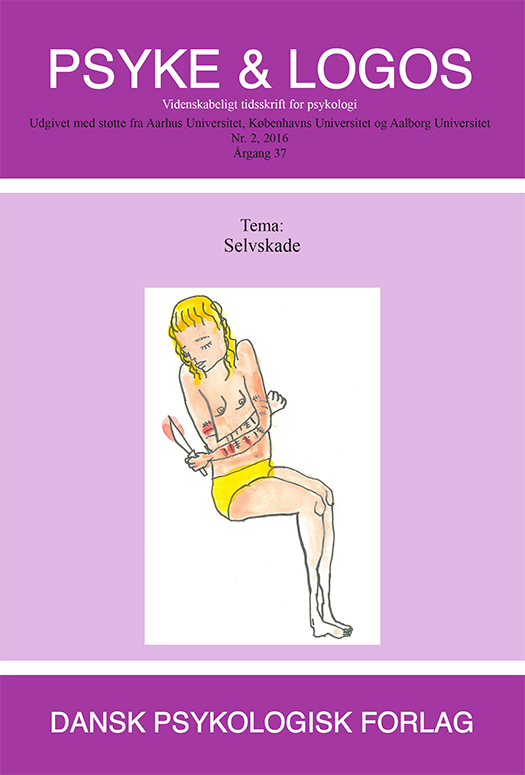Mobning, psykisk lidelse og selvskade
DOI:
https://doi.org/10.7146/pl.v37i2.25745Resumé
The aim of the paper is to investigate how childhood experiences of bullying may later create self-destructive and self-harming behavior. The paper summarizes the empirical quantitative research, but has its main focus on structural qualitative interviews with young adults who participate in group therapy treatment program. The empirical material
clarifies how young adults understand early experiences with bullying and its relation to psychic sufferings and self-destructivity, and the difficulties in addressing the difficulties on a social level. The paper investigates, from a phenomenological and psychoanalytic perspective, how
childhood experiences of bullying are associated with strong, dominating, often unconscious, emotions of shame. The hidden and diffuse character of shame leads to both direct and indirect self-harm. Patterns of repetition with self-devaluation and experiences of exclusion hinder the possibilities of the person to build interpersonal relationships that
may contribute to development of the self. The retrospective and prospective effects of bullying are elucidated empirically and theoretically, and the concepts of complexity, trauma, Nachträglichkeit, repetition and intersubjectivity play a core role. The paper also points out how hindrances of verbalization – in families, among friends
and in therapy – may contribute further to self-harming behavior.
Downloads
Publiceret
Citation/Eksport
Nummer
Sektion
Licens
Ophavsret er tidsskriftets og forfatternes. Det er gældende praksis, at artikler publiceret i Psyke & Logos, som efterfølgende oversættes til andet sprog, af forfatteren frit kan publiceres i internationale tidsskrifter, dog således at det ved reference fremgår, at den oversatte artikel har et forlæg i en dansksproget version i Psyke & Logos. Artikler kan frit deles og linkes til på forsknings- og undervisningsnetværk (så som Blackboard). Link foretrækkes, fordi det giver oplysning om brug af tidsskriftets artikler.




